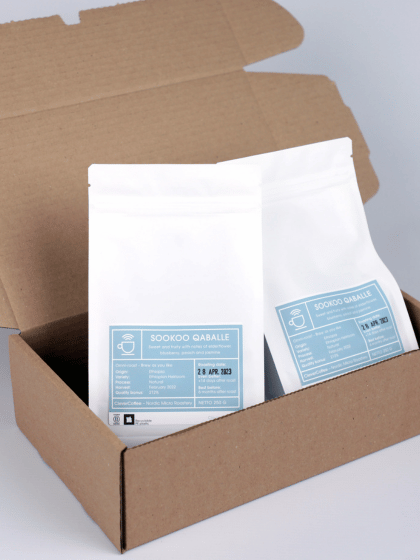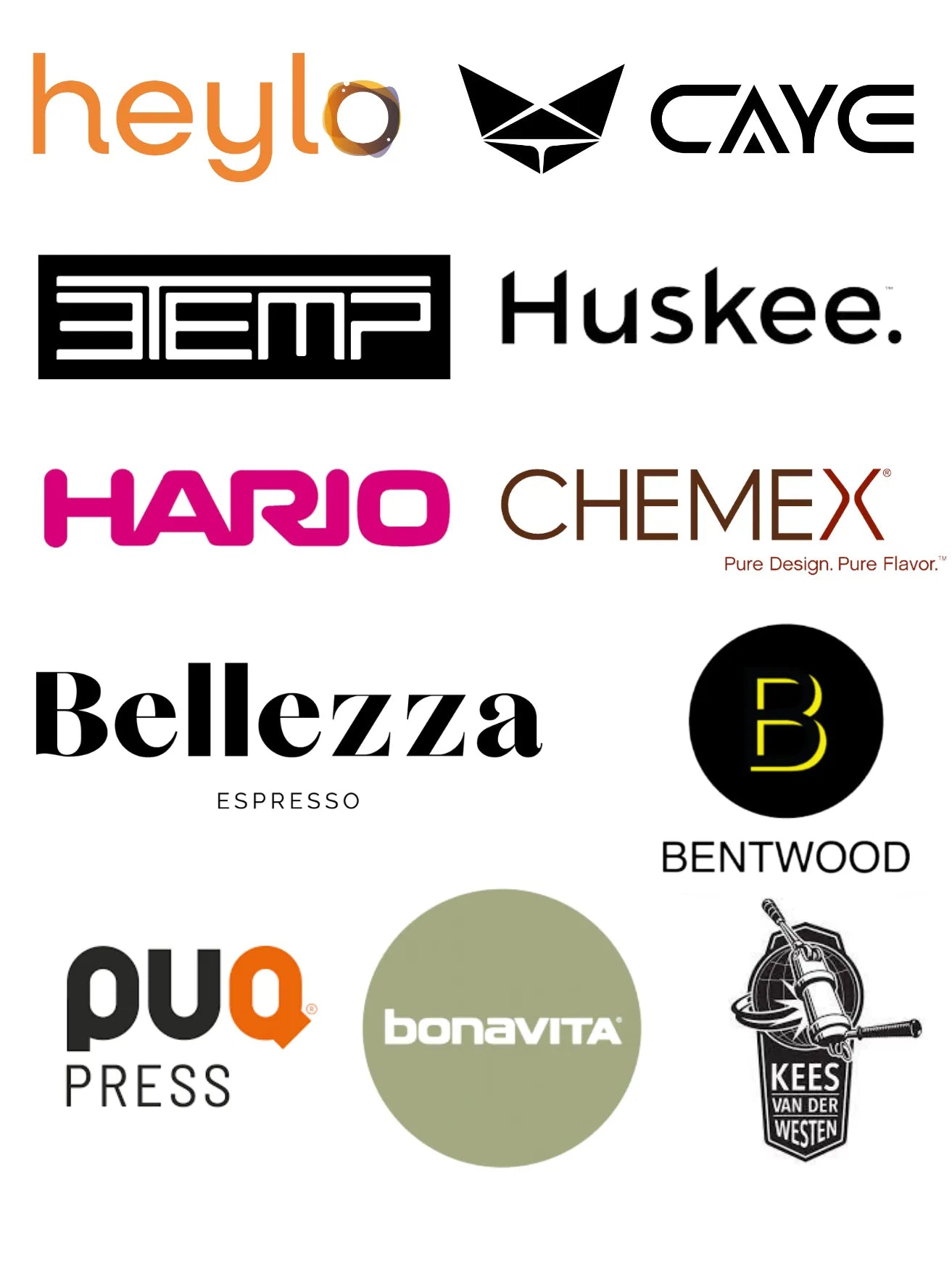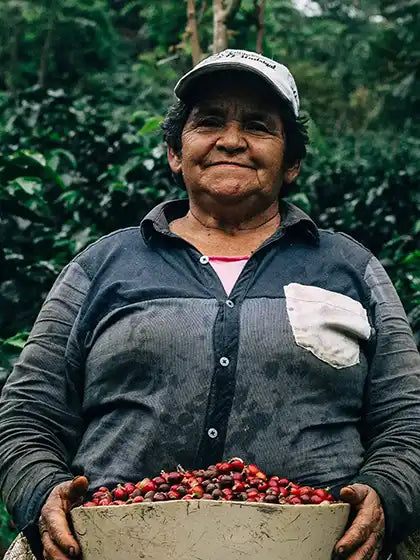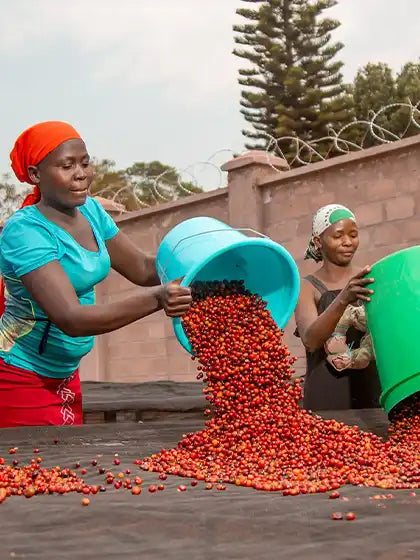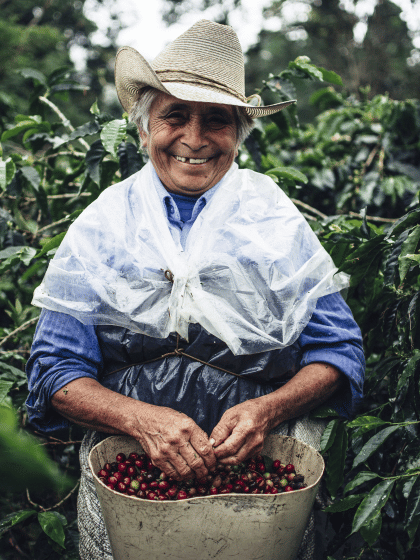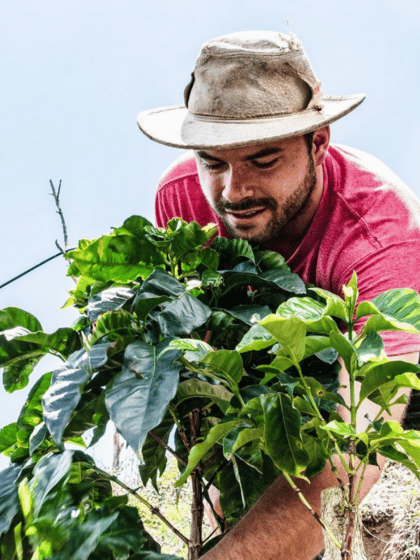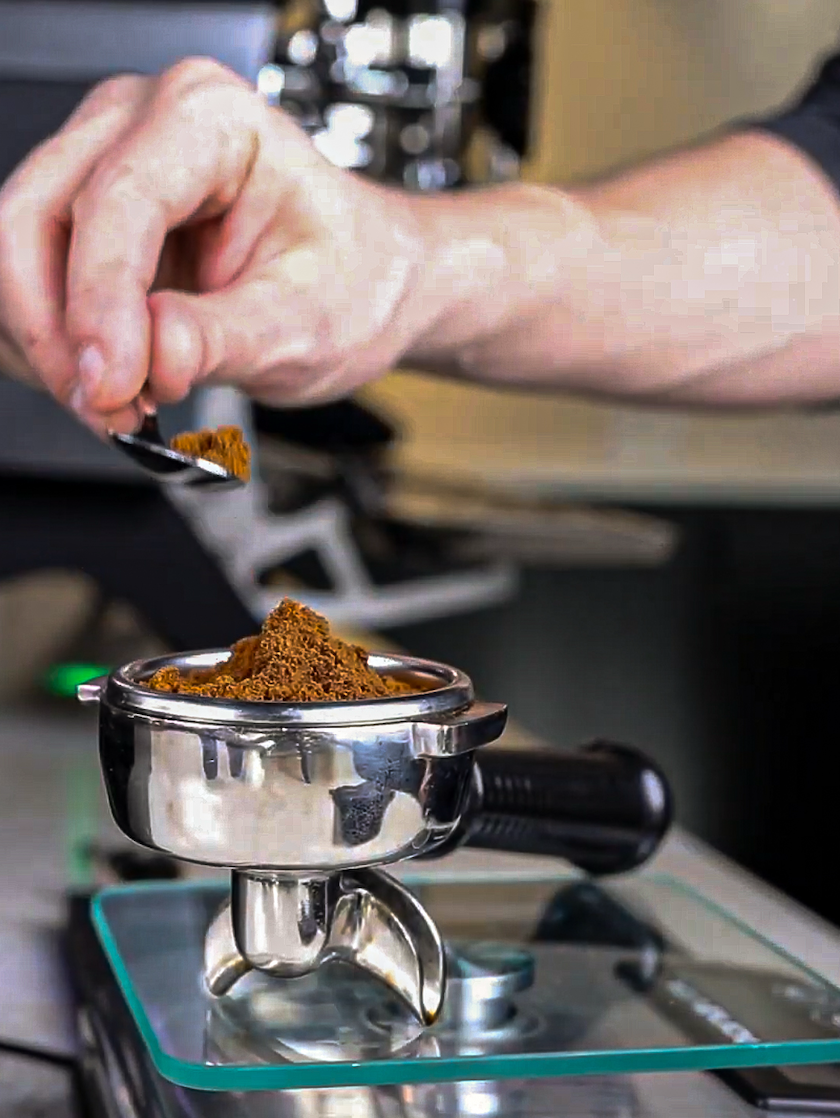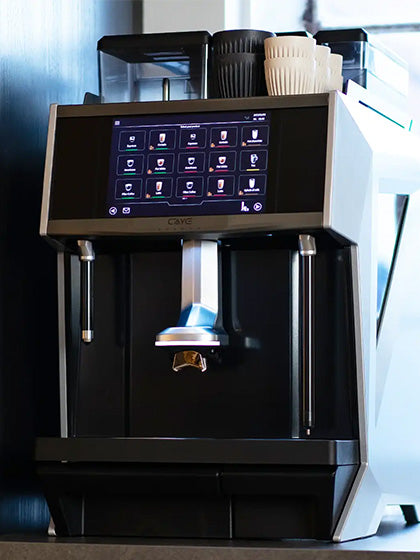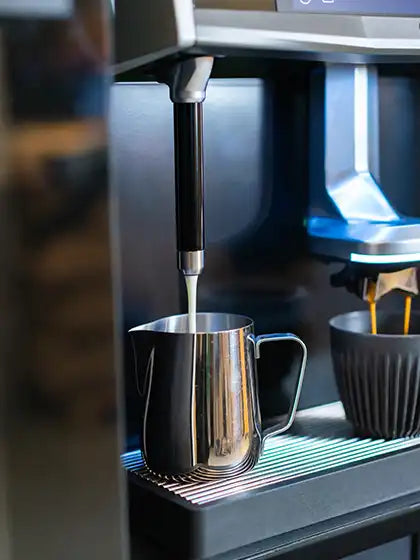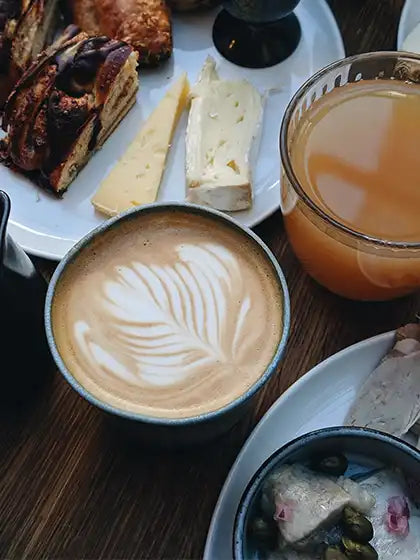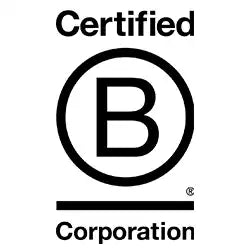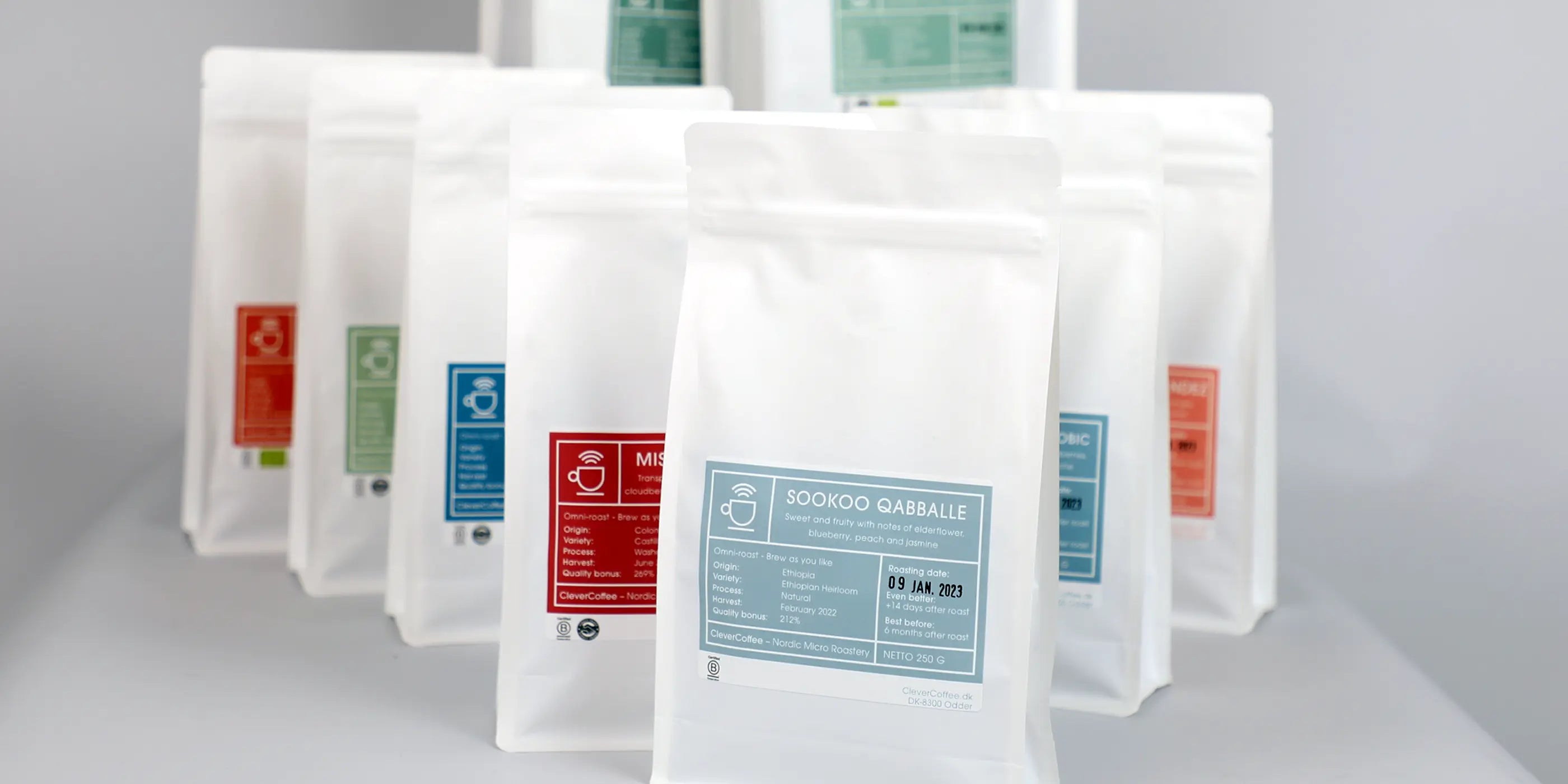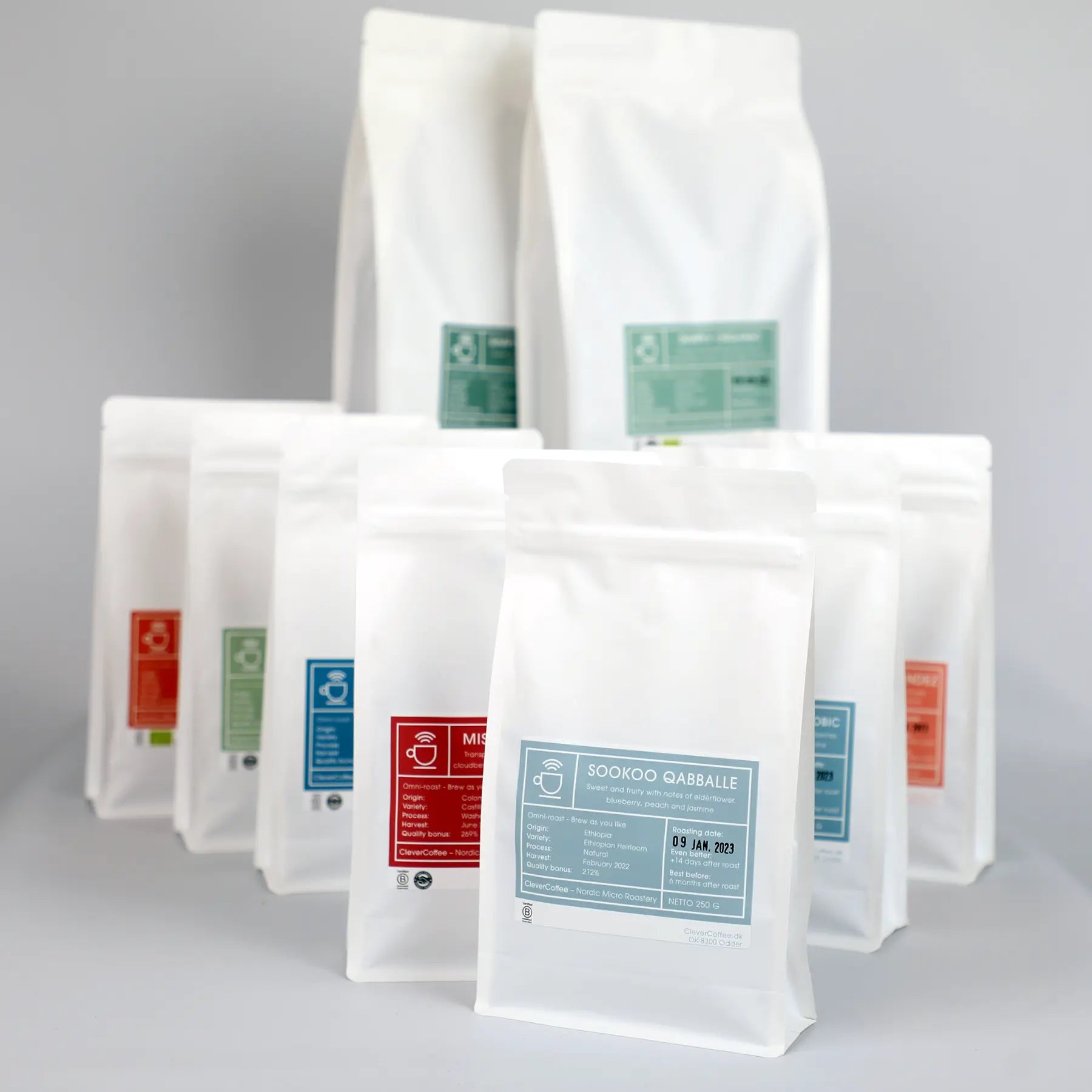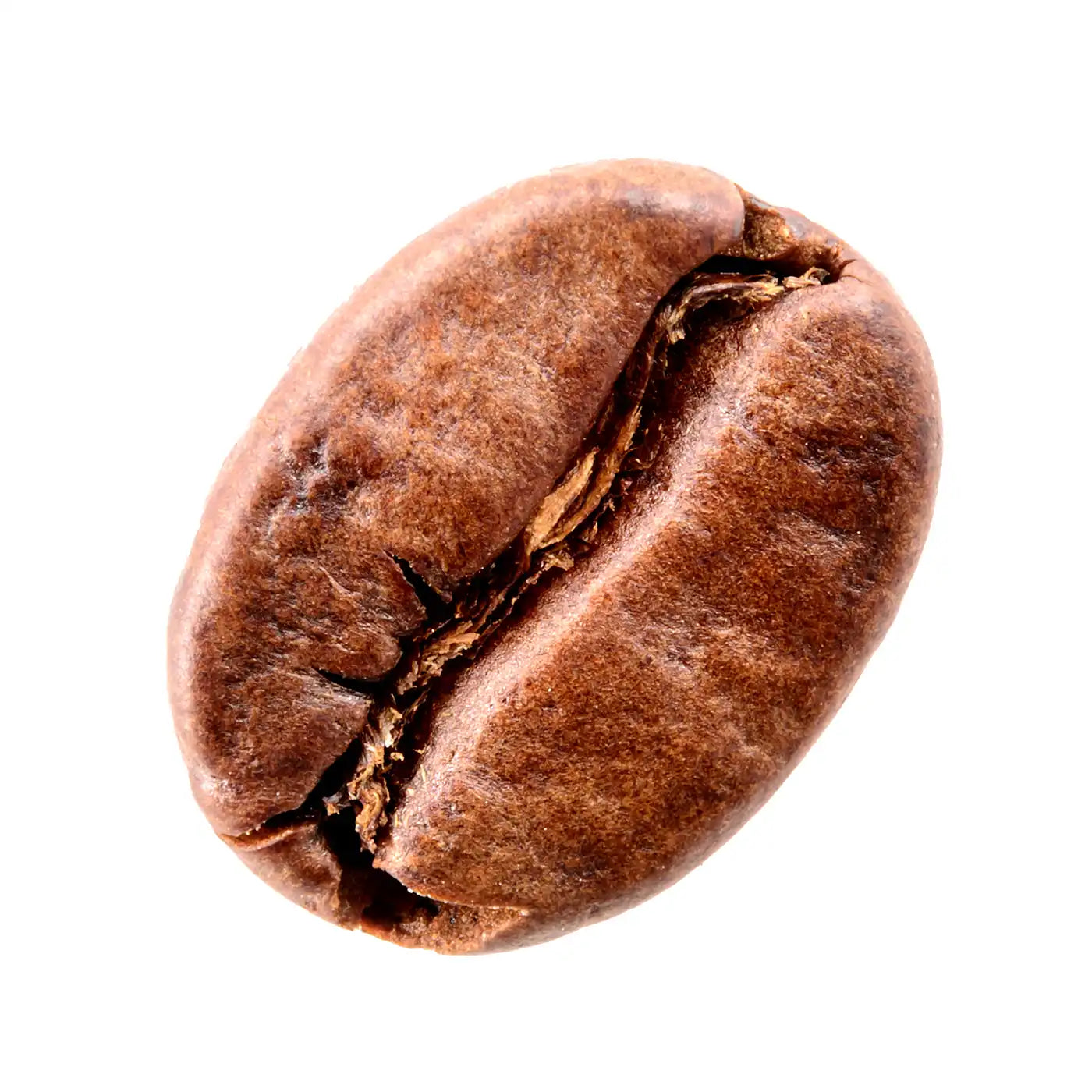

CleverCoffee
Kabingara - Kenya
This washed coffee from Kirinyaga, Kenya, is bursting with fruity nuances and juicy sweetness. Grown in challenging conditions but with a process that highlights the classic, vibrant Kenyan character.
- Origin: Kenya
- Processing: Washed
- Tasting notes: Juicy and complex with notes of kiwi, raspberry, rosehip and rose water
Omni-roasted coffee beans - brew any way you like
CleverCoffee is a certified B Corp.
The coffee you buy at CleverCoffee leaves a well-documented, positive impact on the world.
In our opinion, B Corp certification is the world's most stringent third-party verification, guaranteeing that you are buying your coffee from a responsible company.
When we were certified in 2021, we were only company number 30 in Denmark. Today there are more than 100.
The B Corp certification verifies our work in:
- Environment
- Social (Workers/Community/Customers)
- Governance
We thus have extensive documentation that we use our primary business to create a positive impact on the world.
As a customer at CleverCoffee, you contribute to ensuring that coffee farmers can live a life above the poverty line and that they can afford to develop their farms so that they have a long-term source of income.
In addition to contributing positively to the living conditions of coffee farmers, CleverCoffee's B Corp certification is your assurance that we always source our coffee responsibly and with the environment in mind.
What was our score?
When we were certified back in 2021, we received the following score:
- Governance 15.7
- Workers 20.0
- Community 27.2
- Environment 25.2
- Customers 0.0
Total: 88.2
We have begun the recertification process in 2024. Due to new initiatives and progress, we expect a significant increase in points for our new certification.
Documentation
We paid the coffee farmer 67% more for this coffee
...in comparison, Fairtrade certified coffee typically has a premium of less than 10% for the farmer. And the certification is not free either.
Research shows time and again that certifications such as Fairtrade and Rainforest Alliance have no demonstrable positive effect on the living conditions of coffee farmers. (Cordes and Sagan, 2021)
Western coffee companies are making huge profits while coffee farmers around the world live in poverty. This is wrong, and we need to change that.
That's why we pay more for the coffee beans we import.
44% of coffee farmers worldwide still live in poverty. At least 5.5 million coffee farmers live below the international poverty line of $3.20 a day. Studies show that one-third of coffee farmers earn less than $100 annually from coffee production (Enveritas, 2018; Sachs et al., 2019).
When we pay farmers more, we give them the opportunity to invest in themselves and their businesses. This leads to further growth and the opportunity to invest in more sustainable farming practices such as reducing water use and reforestation projects.
The calculation:
We paid the farmer: 8.8 $/kg
The market price at the time of the contract was: $5.28/kg
This means we have paid the farmer 67% more than the market price.
Documentation
See the complete overview of the payments we have made for our coffee beans in our annual transparency report: CleverCoffee: Transparency Report
Sources
"Responsible Coffee Sourcing: Towards a Living Income for Producers" (Cordes and Sagan, 2021)
"Why do coffee farmers stay poor? : Breaking vicious circles with direct payments from profit sharing" (Ruben, 2023)
"Six Transformations to Achieve the Sustainable Development Goals (SDGs)" (Sachs et al., 2019)
This coffee is grown in agroforestry
This roughly means that the coffee plants are shaded by other trees and plants. Agroforestry is the opposite of what is called “monoculture”, where you have a field that only consists of one type of plant, for example coffee plants.
In a forest farm, the coffee plants are part of a system with animals and plants that live naturally in the area.
There are many different types of agroforestry. There can be different amounts of shade cover, different degrees of diversity in plants and animals, and one can, for example, talk about having several different layers of shade cover, with trees that have their crowns at different heights and thus several layers.
Why agroforestry?
Since 1990, an estimated 420 million hectares of forest have been cleared and converted to agriculture, including coffee plantations. Although the rate of deforestation has slowed in recent decades, significant deforestation continues. About 10 million hectares of forest are cleared each year - an area the size of Iceland.
Therefore, we need to do something.
Forestry is a really good solution for both having food production and at the same time taking care of our ecosystems and climate.
Here are just some of the benefits of agroforestry:
- Increases biodiversity
- Absorbs much more CO2 from the atmosphere
- Minimizes the need for fertilizer
- Make coffee plants more resilient
- Extends the life of the coffee plant
- Gives the coffee a higher quality and better taste, as the coffee cherries take longer to ripen in the shade
- Better soil conditions
- Creates a microclimate that makes plants more resistant to climate change
Read more:
A short and transparent supply chain
We always work with as short and transparent a supply chain as possible. 98% of our coffee is purchased directly from the coffee farm, without using a middleman.
This coffee is an exception, as we have used a transparent importer to bring the coffee home.
The vast majority of our roasted coffee is also purchased directly from us - with the exception of a few retailers, such as coffee shops and specialty stores. You cannot buy our coffee in any large chains or on online marketplaces.
This means that there are fewer parties who have to "have a piece of the pie" and we ensure better payment for the coffee farms, which have been underpaid and living in poverty for decades.
The supply chain for this coffee looks like this:
- The coffee is grown in Kenya in the Kirinyaga area.
- The coffee cherries have been processed at the local washing station Kabingara
- The green coffee beans are imported by Nordic Approach and stored in a warehouse in Zeebrugge, Belgium.
- The green beans have then been transported to CleverCoffee.
- The coffee is roasted and packaged at CleverCoffee in our own roastery outside Aarhus.
Taste the World
Coffee on Subscription
Get a new freshly roasted coffee delivered to your door every single month and get access to exclusive releases.

